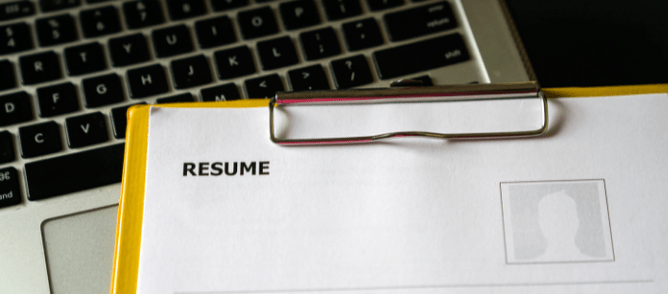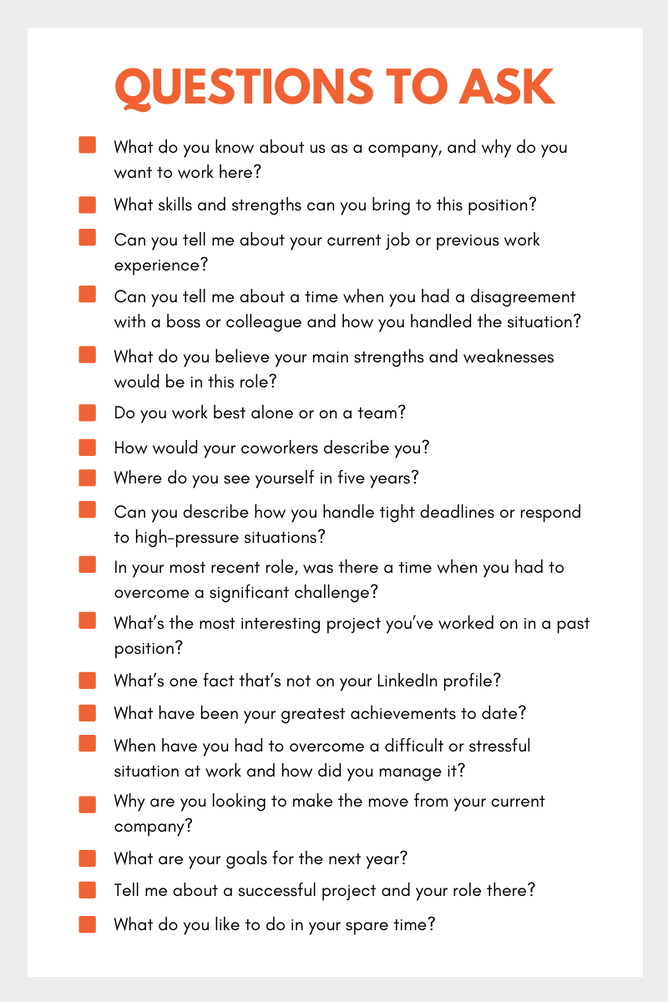Hiring the proper personnel is crucial to a company's success. A well-planned and effective interview lets you evaluate a candidate’s abilities and knowledge to successfully do the job and whether their attitude and values will fit in with the company.
The main goal is to gain accurate information to assess a candidate, both against the job criteria and other candidates for the position. Follow our interview guide below for advice to help you achieve this goal.
How to prepare for an interview
1. Preliminary planning
To begin, think about what the entire interview process will involve. We recommend starting with a casual meeting or phone conversation to see whether a candidate will suit the company. This saves you the trouble of lengthy formal interviews if they aren't the appropriate fit upfront.
Following that, evaluate the team or cultural fit as well as the technical fit. These are usually separated into two interviews but you can merge them depending on the position. Next, you'll progress to final talks, which take a less formal meeting style. It's important to move through the interview stages quickly, and plan your process so you can offer and hire a qualified candidate within a few weeks of the initial meeting.
2. Prepare interview questions
Before your main interviews, you should develop an overall approach you can use with all candidates. Rank the key skills required for the job and have a list of core questions to ask in your interview that explore these skills. You can then have more specific questions tailored to each candidate's resume. Let the original job description be your initial interview guide.
If you have multiple rounds of interviews make sure you prepare questions for each round. Ask factual questions in the first interview to learn more about the candidate and their background. Behavioural questions are more appropriate for the second or third round when the candidate has the opportunity to demonstrate their interpersonal skills.
3. Allocate enough time
Allow adequate time in your schedule. An effective in-person interview should last at least 30-40 minutes. This gives both parties ample time to get to know one another and gather enough relevant information.
Conducting all in-person interviews over the course of one to two days allows you to move through the interview process quickly while keeping the applicants fresh in your memory. However, too many interviews crammed back-to-back can be tiring and difficult to maintain energy and momentum - ensure you have sufficient breaks and time to review each candidate.
4. Apply common criteria
Look at your company's most productive workers for the traits they bring to their roles. You can then assess each candidate based on the same set of criteria that predict success in your organisation - such as enthusiasm, personality, and job-specific skills.
With the right preparation, you’ll know how to optimise your job interview practices and be ready to build a shortlist and pick your next star employee.
How to conduct an interview
The right preparation means you will conduct a productive interview. It’s important to organise the process to ensure you get the best information from the candidate and make a professional impression. Here's a short step-by-step guide on how to interview someone.
Welcome the candidate. Be friendly, show them where they can sit and offer them a drink. This is the first impression the candidate will make of you - so have a tidy office and be completely present without distractions.
Introduce yourself. Tell the candidate about yourself and what role you play within the company. Opening the interview courteously shows respect for the candidate and will put them at ease.
Set the scene. Provide a background to your organisation and its vision. Briefly describe the role, including what the position involves. Ask the candidate generalised interview questions to break the ice. Make sure that how you conduct yourself from beginning to end matches the company's personality and values.
Ask consistent questions. Using a specific set of questions at the start of each interview helps you compare candidates and find the person who most closely matches what you’re looking for.
Tailor your interview. While consistency is important, a competent interviewer knows when to ask subsequent questions based on the candidate’s responses. Refer back to the applicant's resume to ask them about experiences that relate to the position such as job details, responsibilities, what they accomplished, and pressures they encountered. This will help you uncover candidates’ strengths and weaknesses. Remember that open-ended questions are useful during interviews to allow the candidate to show their personality.
Take notes. This allows you to remember specific details rather than relying on your memory, especially on a busy day of interviews. Make sure you take notes unobtrusively so the candidates don't feel distracted, or that you’re not listening to them.
Give candidates a chance to ask questions. Asking questions allows candidates to assess whether the position and organisation are a good fit for them. These questions also assist you in determining how well candidates have prepared for the interview if they are genuinely interested in the company and position.
Don't hurry to a conclusion. Try to avoid forming an opinion about an applicant too quickly. Wait until after the interview to evaluate their responses and your notes, seeking a second opinion if need be.
Exercise post-interview etiquette. Thank the candidates for their time, no matter how the interview went. To prevent candidates from becoming disinterested, always provide an estimated timeline of your final decision.
What questions to ask in an interview
The interview is your opportunity to get to know your potential employee better, where you’ll go further into the abilities listed in their resume.
Questions become an interview guide; they help to lead and shape the conversation between you and the interviewee. Knowing what questions to ask as the interviewer is an important part of the process.
Ask quality questions and you’ll get a better understanding of your applicants, which helps you gauge intangibles like enthusiasm, initiative, objectives, cultural fit, attitudes, and communication skills.
Here we’ve compiled a list of potential questions to ask in an interview:
These questions are all about finding out what kind of people your candidates are, the level of their interpersonal skills, how they behave under pressure, if they are qualified for the position, and if their resumes are truthful. Being well prepared and conducting an interview methodically will help you make the most of this important recruitment tool. After following these interview guidelines, you can be confident that you’re well on your way to securing top talent for your business.
At TwoTicks, our hiring solution process ensures that potential applicants are telephone interviewed first, making it faster for you to engage with the right people. We assess and confirm their communication skills, immigration status, current and expected income, the reason for their interest in the role and when they are available to start. You can then easily progress on to the interview.
We continue to provide you with our service until your role is filled, including processing applicants and providing weekly shortlists, so you can get on with your work. Get in touch with us today to find out how we can assist you with this process.
Want more hiring tips and recruitment advice?




